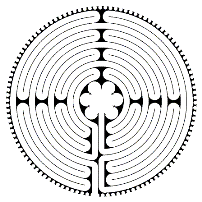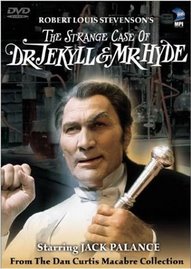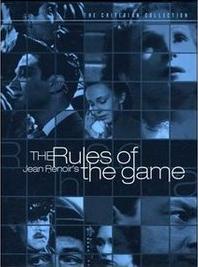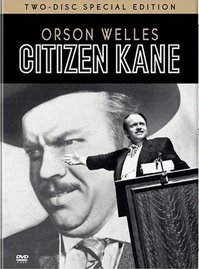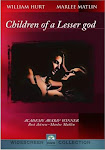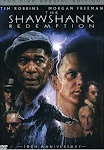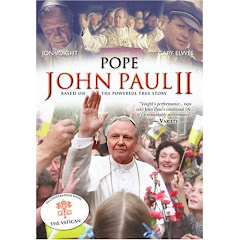Tuesday, January 20, 2009
What should older generation teach to younger generation?
Asked by Janne Mikkola 2 months ago in Mentoring, Ethics Closed
Your public answer:
“Dear Janne, While all of the answers above are important, the real difficulty younger generations have had for a long time is a most telling one. They are taught that they have the freedom to choose and are presented with many predetermined options, which in effect belies the exercise of their real freedom. They are also taught how to make judgments, given sets of discovered and scientifically verified facts and sets of criteria supported by sets of validated reasons from isolated disciplines. They thus learn how to readily dismiss personal intuition and commonsense anecdotes and how to ignore their presumed and unexamined assumptions. Nevertheless, learning how to make judgments about the past and choices about the present are not the most significant lessons we all want to learn, regardless of our age. The most significant lesson is how to make a decision about the future. To state the lesson I would teach in its most succinct form, I would say that making a creative decision comes at the end of the following path of questions with the decision-makers answering them as they go along over time:
1. Where are you coming from prior to the issue arising?
2. Where are you wanting to go with the issue you are confronted with?
3. What are you waiting for?
4. What are your wise ones generally advising about the issue?
5. How are the pros and cons of your issue balancing out?
6. What are the "Powers That Be" saying about the issue?
7. What is your real agenda concerning the issue?
8. What facts and reasons are you contending with?
9. What insights and oversights are emerging?
10. How are you going to tell your decision?
11. What are you willing to risk to gain what you can only hope for with your answer?
12. What is signaling you that the decision you discern is the right one?
I call this path the Decision-Maker's Path (tm) and write blogs in my continuing effort to explore the ways in which other materials link to it. I invite you and others to join me in this exploration. Thanks for your question. John Darrouzet http://specialcounselfordecisionmakers.blogspot.com/2008/03/creative-decision-making.html”
What do you know at your current stage of life that you wish you knew earlier?
Asked by JP Stein 27 days ago in Small Business, Organizational Development Closed
Your public answer:
“Dear JP, I wish I new sooner that the process of knowing is less important than the process of believing. This is so first because credibility is the first issue of evaluating evidence and reasons that are offered in human communication. Second, because in making a decision, what we believe counts more than what we know. Once I got this, I understood not only where the starting point is, but why trust is so important and significant. We entrust our very selves to others who are credible enough to see our blind spots, of which I have many. John”
Logic vs Common Sense: do you see any differences between them? If so please explain...
Asked by Sally Petty 6 days ago in Using LinkedIn Open
Your public answer:
“While logic seems to be everywhere nowadays, given computers, databases, the Internet, etc., common sense does not seem to be as predominant a way of approaching life's problems. It seems that modern logic, especially the logic of the Internet and its search engines, is based on symbolic or mathematical logic that simply manipulates names along conditional paths (logistics for example); whereas, when we humans are trying to make decisions, though we may use the search engines to accumulate our data and information, we employ a logic of common sense. At any given time, then, there appear to be two available logics for us to work with. Symbolic, conditional logic that manipulates nominal propositions seems to presuppose epistemological and metaphysical idealism. By this I mean that before the manipulation begins, the logician supposes that the way he or she knows the named objects is primarily a process of us forming conceptual constructs whereby he or she can experience the people and the world around us. One defines the database before populating it with reported data. Thus, we may never legitimately claim to know the persons or things in the world in and of themselves. Those are forever hidden from us. Think of how the best Internet dating services must work by manipulating the data of responses to arrive at a "perfect" match and yet we all know that until one meets with the person, that person still remains a mystery for a long time and maybe forever. Looked at this way, we will never truly know the other and, for that matter, never truly know ourselves. On the other hand and by contrast, the logic of common sense allows our knowledge to be formed by the people and the world around us. We don't construct them; rather, we discover them via common sense experiences of them. This commonsense approach employs a logic that is either inductive, which can only lead to probable truths or deductive, which leads to certainty. Inductive processes are used by juries. Statisticians may use databases with symbolic, conditional logic to help pick juries, but seasoned attorneys can work with the inductive process and get good results as well. But commonsense logic also uses deduction to great advantage over symbolic logic. For here it is working with presuppositions that are the opposite of that symbolic, nominalistic form of logic. Commonsense logic presupposes epistemological and metaphysical realism. By this I mean that before the deduction begins, the logician supposes that the way he or she knows objects is primarily a process of us simply apprehending the real nature and essence of the person or things and thereby, in an ordered manner, he or she can name the objects in accord with who or what they really are. Thus, we legitimately and with common sense may claim to know the persons or things in the world, not all at once of course, but as part of a continuing process of encountering reality outside of ourselves over time. These real encounters are forever being disclosing things to us. Think of how finding someone to marry or befriend does not end the common sense process of mutual revelation over time. By finding others, we also find ourselves. So, while symbolic, conditional, nominalistic logic is advantageous for searches and compilations of resulting data and information, I for one do not rely on that kind of logic to make judgments requiring induction or deduction and I certainly don't rely on it to make decisions. Thanks for your question. I will refer others to your question and the answers for their further consideration and comment.”
Do you believe in miracles?
Asked by Valerie Lagauskas 4 days ago in Ethics Open
Your public answer:
“Yes, I do believe in miracles. As the pilots' stories of what happened become known, I will be looking for their descriptions of the moment immediately prior to the decision to land on the river. For, while I greatly admire the extraordinary exercise of their piloting safety skills and thank God for the miraculous results, I suspect that at that prior moment the captain of the plane indeed apprehended the insight that revealed the plane's true situation. Hopefully the pilot will tell us more about the source of the insight. Focusing on that moment of insight, I see the possibility that the pilot heroically "seized the sword" of that insight that was hanging above his plane and thus won the struggle to save everyone in his charge. In that one moment, was a true and actual grace offered to him by an angelic message from God? I agree that such a grace was likely offered to and accepted by, him. If we learn that this is how it happened, such a process takes us beyond the analysis of the pilot's choice among alternatives or his judgment about available facts and reasoning. The captain made his decision and by that decision became our hero. There are obvious reasons for us all to celebrate this heroic moment. But you are very wise to ask this question, especially when so many will praise the captain, but not admit the miracle that happened for us all to witness. When a miracle like this happens, who, besides the people directly involved (pilots, crew, passengers, their families and friends) will see the deepest significance of it? How will this miracle change the way people look at live, if at all? In another question that I have posted today ("Whether anyone discerns the ways that knowing and believing are like trusting and loving?"), I ask about how believing compares with knowing in much the same way as loving compares with trusting. Those who don't discern the miracle in this plane crash may be relying too much on knowing. They may trust,but must verify. Those who do discern the miracle may be relying too much on believing. They must love, but may verify with expressions like "seeing is believing" that baffle those who don't see. Perhaps this miracle is meant for those who want to understand more about the beauty of God's grace. Who knows how many will begin their journey to learning more about God's ways of loving us? Who knows how many will begin to place their trust in God? Thank you for your question. Let us all thank God for the love. John”
Why do so many of us struggle with obedience and authority?
Asked by Doyle Slayton 1 day ago in Sales Techniques, Business Development Open
Your public answer:
“Great question! Especially when the day I find the question is the celebration of Martin Luther King Jr., the hero in America of civil disodedience. King had something in common with one of my other heroes, Thomas More. More defied King Henry VIII, saying he was the king's good servant, but God's first. On an historical basis in the West at least, I look back to Henry's struggle with obedience and authority as a watershed event. His inability to obey and recognize centuries-old authority moved us into a new culture where the individual becomes his or her own authority, unwilling to obey anyone else. One of Henry VIII's advisors was one of the first Englishmen to read Machiavelli's The Prince which provided a semblance of intellectual support for this selfish approach to politics. One hundred or so years later, Rene Descartes took ego-centricism to its depths and changed the way we moderns begin to investigate the world. Descartes methodic doubt is basically the cause of our modern despair. It's where Neitzsche's nihilism comes from that has infected the European culture to its depths. As a result, the struggle is therefore an attempt to keep heads above water. (See first link.) But the consequent subjectivism and relativism is producing a rootless grouping of societies. In the mix, now especially as the world economy flounders, the call of radical terrorists will be seen by some as a call to follow a single destructive message. So long as some of us continue to believe we are the ultimate source of authority and obey no other master, we will all become slaves to the mightiest among us, which is exactly the opposite of what we want but exactly what Henry VIII and other tyrants like him eventually came to demand. Failing an understanding of the true source of obedience and authority, we will likely decline into what Belloc rightly calls "The Servile State" (second link) where we will desparately struggle because of our lack of intellectual roots, our discouraged hearts, our alienated, if not outright sold souls, and our forgotten experience of the sacred in the midst of overwhelming profanity. (See third link.) But at this sort of brink, Martin Luther King Jr. had some telling advice that I quote: - An individual has not started living until he can rise above the narrow confines of his individualistic concerns to the broader concerns of all humanity. -Change does not roll in on the wheels of inevitability, but comes through continuous struggle. And so we must straighten our backs and work for our freedom. A man can't ride you unless your back is bent. - Every man must decide whether he will walk in the light of creative altruism or in the darkness of destructive selfishness. - Have we not come to such an impasse in the modern world that we must love our enemies - or else? The chain reaction of evil - hate begetting hate, wars producing more wars - must be broken, or else we shall be plunged into the dark abyss of annihilation. - History will have to record that the greatest tragedy of this period of social transition was not the strident clamor of the bad people, but the appalling silence of the good people. - I have a dream that one day every valley shall be exalted, every hill and mountain shall be made low, the rough places will be made straight and the glory of the Lord shall be revealed and all flesh shall see it together. -I just want to do God's will. And he's allowed me to go to the mountain. And I've looked over, and I've seen the promised land! I may not get there with you, but I want you to know tonight that we as a people will get to the promised land. - I submit to you that if a man hasn't discovered something that he will die for, he isn't fit to live. Both Martin Luther King Jr. and Thomas More found something to die for. Have we? When we do, we shall be obedient to that person and live under that person's authority.”
More Questions Asked and Answered (2)
- Whether anyone discerns the ways that knowing and believing are like trusting and loving?
- Whether logic makes explicit the rules everyone knows innately by common sense and that, when used deductively, permits us to arrive at legitimate certainty and, when used inductively, at legitimate probability?
- Whether logic is still good for us?
- Whether a focused love of truth leads to the central truth of love?
- Whether, instead of one "absolute truth" or many "relative truths" based on what we individually know, unexamined fallacies in what we know divide us; yet we all still believe in and seek truth that unites truths?
- Whether the belief that truth is relative to each person's opinion of it leads to people becoming isolated, dictatorial, unwilling to change and a law unto themselves?
- Whether human personhood ends at brain death?
- Whether human personhood begins at conception?
This question was flagged by other users as inappropriate content, misrepresentation. - Whether the President should sign the "Freedom of Choice Act" if Congress passes it?
- Whether Congress should pass the "Freedom of Choice Act"?
- Whether international bankers have conrtol over America's and your future?
- Whether Christmas means anything to you anymore or ever?
- Whether you need "validation" in order to change for the best?
- Is this a LinkedIn First?
- Whether the punishment of the wise who refuse to take part in government is to live under the government of unwise men?
- Whether you will accept an invitation from a member of LinkedIn on Facebook?
- Heard about Harvard's New Financial Aid Plan?
Sunday, January 4, 2009
Chronological Order of the New Testament
Galatians -49.
http://www.usccb.org/nab/bible/galatians/intro.htm http://www.usccb.org/nab/bible/galatians/galatians1.htm http://www.usccb.org/nab/bible/galatians/galatians2.htm http://www.usccb.org/nab/bible/galatians/galatians3.htm http://www.usccb.org/nab/bible/galatians/galatians4.htm http://www.usccb.org/nab/bible/galatians/galatians5.htm http://www.usccb.org/nab/bible/galatians/galatians6.htm
James - 50 A.D.
http://www.usccb.org/nab/bible/james/intro.htm
http://www.usccb.org/nab/bible/james/james1.htm http://www.usccb.org/nab/bible/james/james2.htm http://www.usccb.org/nab/bible/james/james3.htm http://www.usccb.org/nab/bible/james/james4.htm http://www.usccb.org/nab/bible/james/james5.htm
First Thessalonians - 51.
http://www.usccb.org/nab/bible/1thessalonians/intro.htm http://www.usccb.org/nab/bible/1thessalonians/1thessalonians1.htm http://www.usccb.org/nab/bible/1thessalonians/1thessalonians2.htm http://www.usccb.org/nab/bible/1thessalonians/1thessalonians3.htm http://www.usccb.org/nab/bible/1thessalonians/1thessalonians4.htm http://www.usccb.org/nab/bible/1thessalonians/1thessalonians5.htm
Second Thessalonians - 52.
http://www.usccb.org/nab/bible/2thessalonians/intro.htm http://www.usccb.org/nab/bible/2thessalonians/2thessalonians1.htm http://www.usccb.org/nab/bible/2thessalonians/2thessalonians2.htm http://www.usccb.org/nab/bible/2thessalonians/2thessalonians3.htm
First Corinthians - 55.
http://www.usccb.org/nab/bible/1corinthians/intro.htm http://www.usccb.org/nab/bible/1corinthians/1corinthians1.htm http://www.usccb.org/nab/bible/1corinthians/1corinthians2.htm http://www.usccb.org/nab/bible/1corinthians/1corinthians3.htm http://www.usccb.org/nab/bible/1corinthians/1corinthians4.htm http://www.usccb.org/nab/bible/1corinthians/1corinthians5.htm http://www.usccb.org/nab/bible/1corinthians/1corinthians6.htm http://www.usccb.org/nab/bible/1corinthians/1corinthians7.htm http://www.usccb.org/nab/bible/1corinthians/1corinthians8.htm http://www.usccb.org/nab/bible/1corinthians/1corinthians9.htm http://www.usccb.org/nab/bible/1corinthians/1corinthians10.htm http://www.usccb.org/nab/bible/1corinthians/1corinthians11.htm http://www.usccb.org/nab/bible/1corinthians/1corinthians12.htm http://www.usccb.org/nab/bible/1corinthians/1corinthians13.htm http://www.usccb.org/nab/bible/1corinthians/1corinthians14.htm http://www.usccb.org/nab/bible/1corinthians/1corinthians15.htm http://www.usccb.org/nab/bible/1corinthians/1corinthians16.htm
Second Corinthians - 57.
http://www.usccb.org/nab/bible/2corinthians/intro.htm http://www.usccb.org/nab/bible/2corinthians/2corinthians1.htm http://www.usccb.org/nab/bible/2corinthians/2corinthians2.htm http://www.usccb.org/nab/bible/2corinthians/2corinthians3.htm http://www.usccb.org/nab/bible/2corinthians/2corinthians4.htm http://www.usccb.org/nab/bible/2corinthians/2corinthians5.htm http://www.usccb.org/nab/bible/2corinthians/2corinthians6.htm http://www.usccb.org/nab/bible/2corinthians/2corinthians7.htm http://www.usccb.org/nab/bible/2corinthians/2corinthians8.htm http://www.usccb.org/nab/bible/2corinthians/2corinthians9.htm http://www.usccb.org/nab/bible/2corinthians/2corinthians10.htm http://www.usccb.org/nab/bible/2corinthians/2corinthians11.htm http://www.usccb.org/nab/bible/2corinthians/2corinthians12.htm http://www.usccb.org/nab/bible/2corinthians/2corinthians13.htm
Romans - 57.
http://www.usccb.org/nab/bible/romans/intro.htm http://www.usccb.org/nab/bible/romans/romans1.htm http://www.usccb.org/nab/bible/romans/romans2.htm http://www.usccb.org/nab/bible/romans/romans3.htm http://www.usccb.org/nab/bible/romans/romans4.htm http://www.usccb.org/nab/bible/romans/romans5.htm http://www.usccb.org/nab/bible/romans/romans6.htm http://www.usccb.org/nab/bible/romans/romans7.htm http://www.usccb.org/nab/bible/romans/romans8.htm http://www.usccb.org/nab/bible/romans/romans9.htm http://www.usccb.org/nab/bible/romans/romans10.htm http://www.usccb.org/nab/bible/romans/romans11.htm http://www.usccb.org/nab/bible/romans/romans12.htm http://www.usccb.org/nab/bible/romans/romans13.htm http://www.usccb.org/nab/bible/romans/romans14.htm http://www.usccb.org/nab/bible/romans/romans15.htm http://www.usccb.org/nab/bible/romans/romans16.htm
Mark - 60.
http://www.usccb.org/nab/bible/mark/intro.htm
Matthew - 60.
http://www.usccb.org/nab/bible/matthew/intro.htm
Luke - 60.
http://www.usccb.org/nab/bible/luke/intro.htm
Colossians - 61.
http://www.usccb.org/nab/bible/colossians/intro.htm http://www.usccb.org/nab/bible/colossians/colossians1.htm http://www.usccb.org/nab/bible/colossians/colossians2.htm http://www.usccb.org/nab/bible/colossians/colossians3.htm http://www.usccb.org/nab/bible/colossians/colossians4.htm
Philemon - 61.
http://www.usccb.org/nab/bible/philemon/philemon.htm
Ephesians - 61.
http://www.usccb.org/nab/bible/ephesians/intro.htm http://www.usccb.org/nab/bible/ephesians/ephesians1.htm http://www.usccb.org/nab/bible/ephesians/ephesians2.htm http://www.usccb.org/nab/bible/ephesians/ephesians3.htm http://www.usccb.org/nab/bible/ephesians/ephesians4.htm http://www.usccb.org/nab/bible/ephesians/ephesians5.htm http://www.usccb.org/nab/bible/ephesians/ephesians6.htm
Philippians - 62.
http://www.usccb.org/nab/bible/philippians/intro.htm http://www.usccb.org/nab/bible/philippians/philippians1.htm http://www.usccb.org/nab/bible/philippians/philippians2.htm http://www.usccb.org/nab/bible/philippians/philippians3.htm http://www.usccb.org/nab/bible/philippians/philippians4.htm
First Timothy - 63.
http://www.usccb.org/nab/bible/1timothy/intro.htm http://www.usccb.org/nab/bible/1timothy/1timothy1.htm http://www.usccb.org/nab/bible/1timothy/1timothy2.htm http://www.usccb.org/nab/bible/1timothy/1timothy3.htm http://www.usccb.org/nab/bible/1timothy/1timothy4.htm http://www.usccb.org/nab/bible/1timothy/1timothy5.htm http://www.usccb.org/nab/bible/1timothy/1timothy6.htm
Acts - 63.
http://www.usccb.org/nab/bible/acts/intro.htm
Hebrews - 64.
http://www.usccb.org/nab/bible/hebrews/intro.htm http://www.usccb.org/nab/bible/hebrews/hebrews1.htm http://www.usccb.org/nab/bible/hebrews/hebrews2.htm http://www.usccb.org/nab/bible/hebrews/hebrews3.htm http://www.usccb.org/nab/bible/hebrews/hebrews4.htm http://www.usccb.org/nab/bible/hebrews/hebrews5.htm http://www.usccb.org/nab/bible/hebrews/hebrews6.htm http://www.usccb.org/nab/bible/hebrews/hebrews7.htm http://www.usccb.org/nab/bible/hebrews/hebrews8.htm http://www.usccb.org/nab/bible/hebrews/hebrews9.htm http://www.usccb.org/nab/bible/hebrews/hebrews10.htm http://www.usccb.org/nab/bible/hebrews/hebrews11.htm http://www.usccb.org/nab/bible/hebrews/hebrews12.htm http://www.usccb.org/nab/bible/hebrews/hebrews13.htm
Titus - 65.
http://www.usccb.org/nab/bible/titus/intro.htm
http://www.usccb.org/nab/bible/titus/titus1.htm
http://www.usccb.org/nab/bible/titus/titus2.htm
http://www.usccb.org/nab/bible/titus/titus3.htm
John - 65.
http://www.usccb.org/nab/bible/john/intro.htm
Epistles of John - 65.
http://www.usccb.org/nab/bible/1john/intro.htm
http://www.usccb.org/nab/bible/1john/1john1.htm
http://www.usccb.org/nab/bible/1john/1john2.htm
http://www.usccb.org/nab/bible/1john/1john3.htm
http://www.usccb.org/nab/bible/1john/1john4.htm
http://www.usccb.org/nab/bible/1john/1john5.htm
http://www.usccb.org/nab/bible/2john/2john.htm
http://www.usccb.org/nab/bible/3john/3john.htm
First Peter - 65.
http://www.usccb.org/nab/bible/1peter/intro.htm http://www.usccb.org/nab/bible/1peter/1peter1.htm http://www.usccb.org/nab/bible/1peter/1peter2.htm http://www.usccb.org/nab/bible/1peter/1peter3.htm http://www.usccb.org/nab/bible/1peter/1peter4.htm http://www.usccb.org/nab/bible/1peter/1peter5.htm
Second Timothy - 67.
http://www.usccb.org/nab/bible/2timothy/intro.htm http://www.usccb.org/nab/bible/2timothy/2timothy1.htm http://www.usccb.org/nab/bible/2timothy/2timothy2.htm http://www.usccb.org/nab/bible/titus/titus3.htm
Second Peter - 67.
http://www.usccb.org/nab/bible/2peter/intro.htm http://www.usccb.org/nab/bible/2peter/2peter1.htm http://www.usccb.org/nab/bible/2peter/2peter2.htm http://www.usccb.org/nab/bible/2peter/2peter3.htm
Jude - 68.
http://www.usccb.org/nab/bible/jude/jude.htm
Revelation - 70.
http://www.usccb.org/nab/bible/revelation/intro.htm http://www.usccb.org/nab/bible/revelation/revelation1.htm http://www.usccb.org/nab/bible/revelation/revelation2.htm http://www.usccb.org/nab/bible/revelation/revelation3.htm http://www.usccb.org/nab/bible/revelation/revelation4.htm http://www.usccb.org/nab/bible/revelation/revelation5.htm http://www.usccb.org/nab/bible/revelation/revelation6.htm http://www.usccb.org/nab/bible/revelation/revelation7.htm http://www.usccb.org/nab/bible/revelation/revelation8.htm http://www.usccb.org/nab/bible/revelation/revelation9.htm http://www.usccb.org/nab/bible/revelation/revelation10.htm http://www.usccb.org/nab/bible/revelation/revelation11.htm http://www.usccb.org/nab/bible/revelation/revelation12.htm http://www.usccb.org/nab/bible/revelation/revelation13.htm http://www.usccb.org/nab/bible/revelation/revelation14.htm http://www.usccb.org/nab/bible/revelation/revelation15.htm http://www.usccb.org/nab/bible/revelation/revelation16.htm http://www.usccb.org/nab/bible/revelation/revelation17.htm http://www.usccb.org/nab/bible/revelation/revelation18.htm http://www.usccb.org/nab/bible/revelation/revelation19.htm http://www.usccb.org/nab/bible/revelation/revelation20.htm http://www.usccb.org/nab/bible/revelation/revelation21.htm http://www.usccb.org/nab/bible/revelation/revelation22.htm
